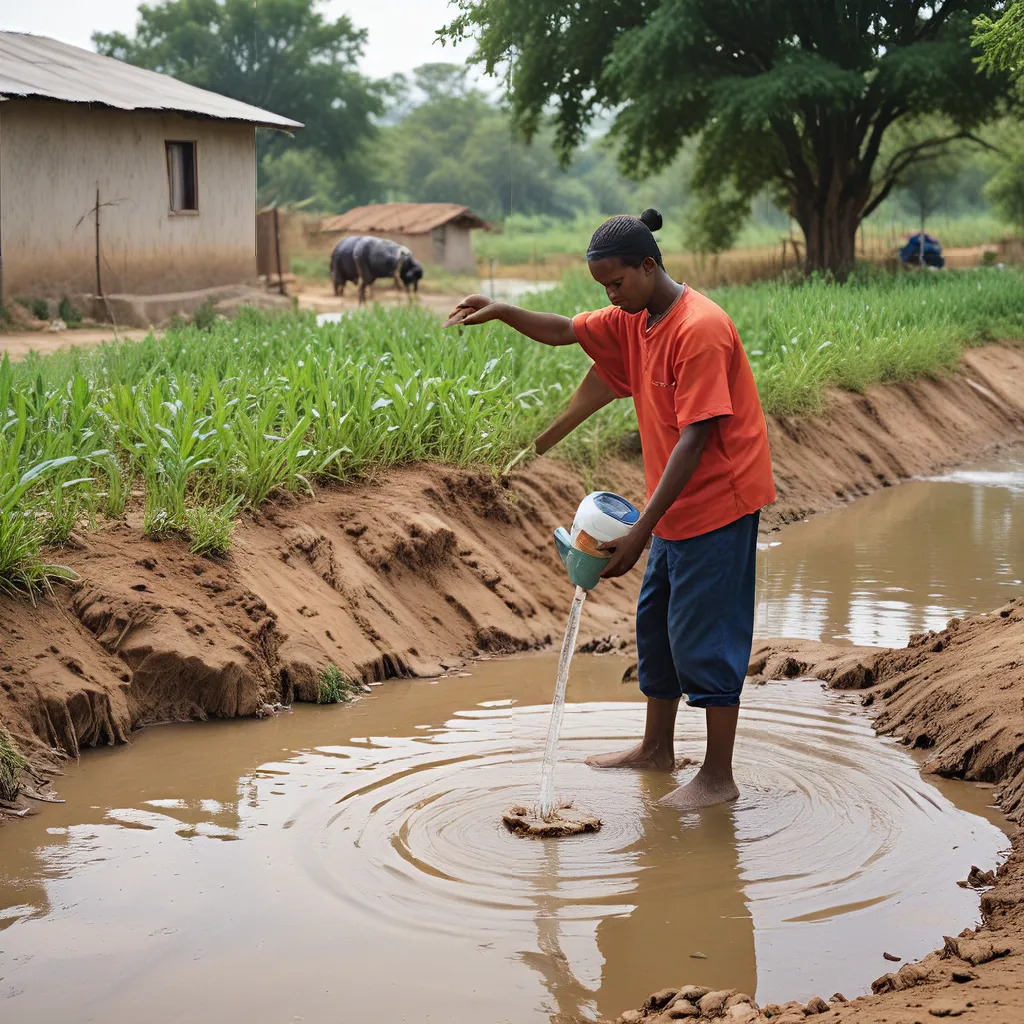
As someone who has spent the better part of my career working in the water and sanitation sector, I’m deeply passionate about the role decentralized wastewater treatment can play in supporting thriving rural communities. You see, I grew up in a small town where access to reliable, clean water was often a challenge. The local wastewater treatment plant was outdated and overwhelmed, leading to frequent spills and environmental contamination. It was a constant source of frustration for our community.
But then, something remarkable happened. Our town decided to take a different approach and invested in a decentralized wastewater system. This new solution, tailored to our local needs, has been nothing short of transformative. It’s not only improved water quality and environmental protection but has also strengthened our community’s resilience in the face of increasingly unpredictable weather patterns and resource scarcity.
The Limitations of Centralized Wastewater Systems
Let’s be honest – traditional, centralized wastewater treatment plants have long been the industry standard. But as our world becomes more complex, these one-size-fits-all solutions are proving increasingly inadequate, especially for rural and remote areas.
Recent research has highlighted the limitations of centralized systems, including their high capital and operational costs, energy-intensive nature, and vulnerability to disruptions. These factors can make them particularly challenging to implement and maintain in sparsely populated or resource-constrained regions.
Additionally, centralized systems often fail to account for the unique needs and characteristics of individual communities. They may not be able to effectively address local water quality concerns, environmental considerations, or the specific infrastructure and land-use challenges faced by rural areas.
The Rise of Decentralized Wastewater Solutions
But there’s good news on the horizon: decentralized wastewater treatment is gaining ground as a more resilient and sustainable alternative. These localized systems are designed to meet the specific needs of a community or even a single household, rather than trying to serve an entire region from a single, centralized facility.
The United States government has recognized the value of decentralized wastewater solutions, particularly in supporting rural development and environmental protection. Initiatives like the Water and Environmental Programs (WEP) provide financial and technical assistance to communities seeking to implement these innovative approaches.
One of the key benefits of decentralized systems is their flexibility and adaptability. They can be tailored to local conditions, such as soil type, topography, and water usage patterns, ensuring optimal performance and efficiency. This customization also allows for better integration with natural ecosystems, minimizing the environmental impact and promoting a more harmonious relationship between human activities and the surrounding landscape.
Enhancing Water Security and Sustainability
But the real magic of decentralized wastewater treatment lies in its ability to enhance water security and sustainability for rural communities. By treating and reusing water locally, these systems reduce the strain on limited water resources and help build resilience against the effects of climate change, such as droughts and water scarcity.
Experts in the field of water security and sanitation have highlighted how decentralized solutions can play a crucial role in ensuring access to clean, reliable water for drinking, agriculture, and other essential uses. This is particularly important in remote or underserved areas, where centralized infrastructure may be lacking or inadequate.
Moreover, the recycling and reuse of treated wastewater through decentralized systems can provide a valuable source of irrigation water for local agriculture, reducing the demand on scarce freshwater resources. This not only supports food security but also contributes to the overall sustainability of rural communities by promoting a more circular approach to water management.
Empowering Rural Communities
But the benefits of decentralized wastewater treatment go beyond just water security and sustainability. These solutions also have the power to empower and strengthen rural communities in remarkable ways.
For one, the implementation of a decentralized system often involves community engagement and participation. Residents are encouraged to take an active role in the decision-making process, ensuring that the system aligns with their unique needs and preferences. This sense of ownership and investment can foster a stronger sense of community pride and collaboration, ultimately leading to more resilient and self-reliant rural areas.
Additionally, the economic impact of decentralized wastewater systems can be significant. By reducing the need for costly centralized infrastructure and the associated operating and maintenance costs, these localized solutions can free up resources for other community priorities, such as education, healthcare, or economic development initiatives.
Embracing the Future of Wastewater Management
As I reflect on my own experiences and the transformative impact of decentralized wastewater treatment in my hometown, I can’t help but feel inspired and optimistic about the future. This innovative approach is paving the way for more resilient, sustainable, and empowered rural communities – places where access to clean water is not a luxury, but a fundamental right.
Of course, the journey ahead is not without its challenges. There are still technological hurdles to overcome, regulatory barriers to navigate, and misconceptions to dispel. But I firmly believe that by embracing the power of decentralized wastewater solutions, we can unlock a brighter, more water-secure future for rural communities across the globe.
And who knows, maybe one day, your own community will embark on this transformative journey, just like mine did. If so, I encourage you to explore the services of Alpha Wastewater, a company that specializes in designing and implementing cutting-edge decentralized wastewater treatment systems. Their expertise and dedication to sustainable solutions could be the key to unlocking your community’s full potential.
So, what are you waiting for? Let’s dive in and discover the remarkable potential of decentralized wastewater treatment – one that promises to revolutionize the way we think about water security, sustainability, and the resilience of our rural communities.